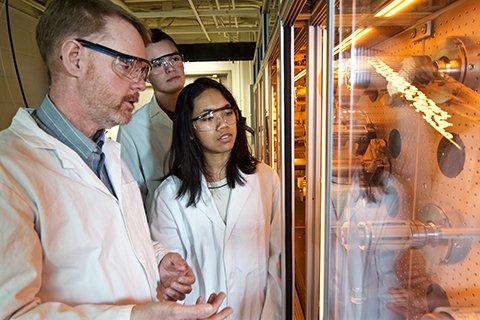Chemical engineering
Chemical engineers are undertaking some of the planet’s greatest challenges in energy resources, pollution control, and new medical therapies. They work on a wide variety of projects to chemically and physically transform matter. With a degree in chemical engineering, you will be prepared to work in a wide range of industries or may go on for graduate study in different fields of engineering (chemical engineering, biomedical engineering, materials science and engineering), medical school, or patent and environmental law.
Careers
- Biotechnology engineer
- Polymer manufacturing engineer
- Pharmaceutical manufacturing engineer
- Research and development engineer
- Quality control engineer
- Regulatory affairs engineer
- Manufacturing production engineer
- Food processing engineer
- Petrochemicals engineer
- Consultant
What you’ll study
The curriculum includes:
- Courses on the fundamentals of chemical engineering science (thermodynamics, fluid mechanics, heat and mass transfer, kinetics and reactor design) and more application-focused courses (process design, process control, economic analysis, numerical methods, biochemical engineering)
- Hands-on lab courses using pilot-scale chemical engineering equipment
You may add a second major in chemistry or materials science.
The Bachelor of Chemical Engineering is accredited by the Engineering Accreditation Commission of ABET.

